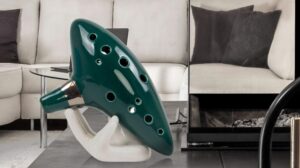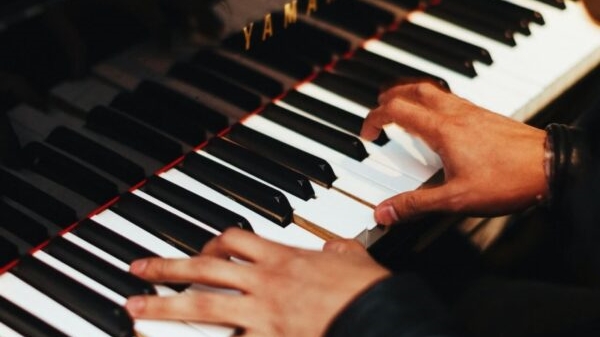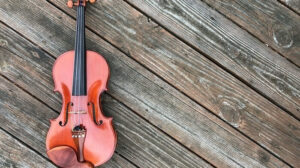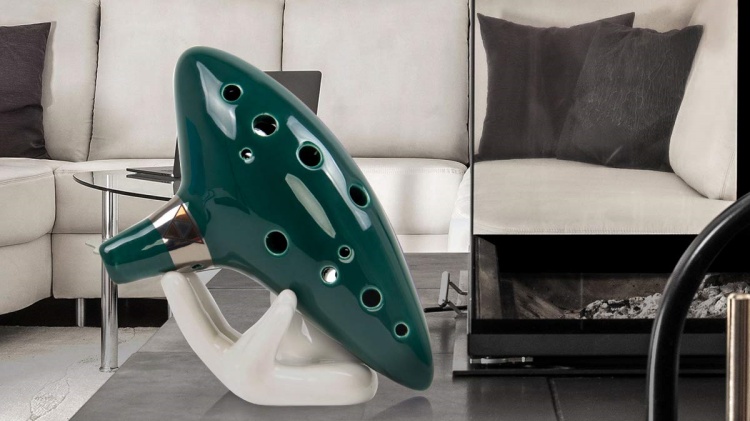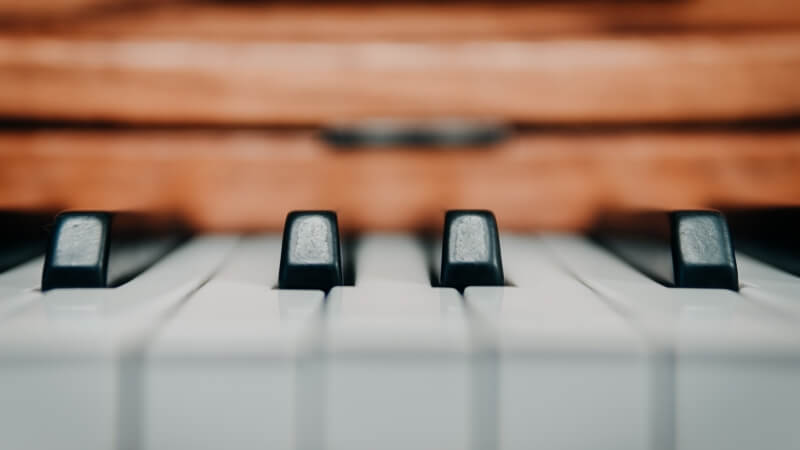The ocarina is an enchanting wind instrument that produces sweet, haunting tones – almost like you’re magically conjuring a woodland songbird. For newcomers charmed by the ocarina, the first step is selecting an ideal starter instrument to learn and practice on.
With so many ocarina varieties available, making the right choice can feel overwhelming for beginners.
Don’t worry! In this detailed buying guide, we’ll walk through the key considerations for choosing your first ocarina to suit your needs as a budding musician.
Follow this advice and you’ll be making heartfelt music on your ocarina in no time.
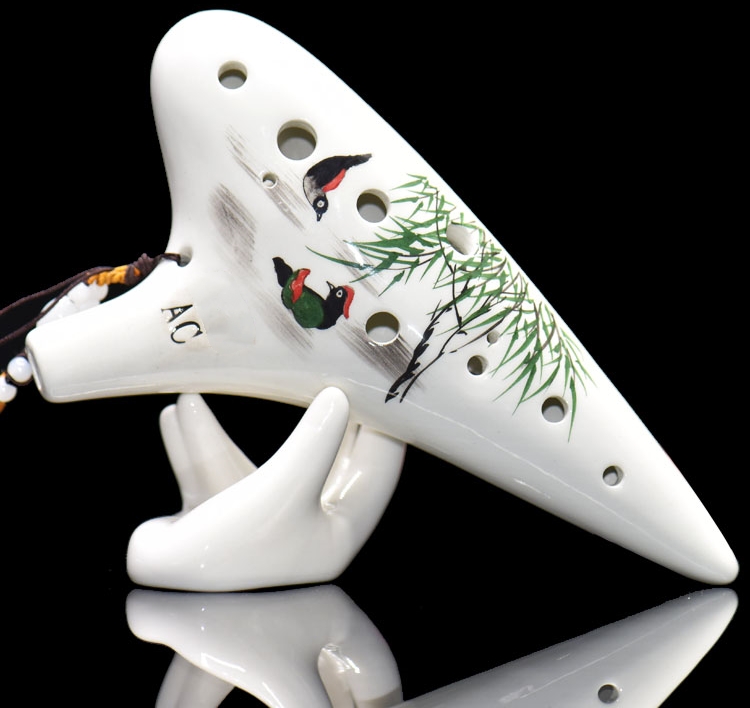
Ocarina Types for Beginners
The first decision is selecting the best style of ocarina for learning the basics:
- Pendant Ocarinas – Hanging pendant ocarinas with an elongated teardrop shape is one of the most common starter ocarinas, easy to hold and play.
- Inline Ocarinas – Inline Ocarinas feature all the finger holes in a straight line. Their simple design makes fingering easy to learn.
- English Pendant Ocarinas – Round or oval pendants with a flat side that sits against your chest when hanging around the neck. Very portable.
- Transverse Ocarinas – Also called “sweet potato” ocarinas for their oblong shape. Excellent sound quality in an organic form.
For your first ocarina, avoid more advanced multi-chamber ocarinas. Stick with time-tested single-chamber beginner models.
Number of Holes
Most beginner ocarinas have between 6 and 12 finger holes:
- 6-8 holes – Can play simple, pleasing tunes. Limiting if you progress quickly.
- 10 holes – Standard number for entry-level ocarinas. Suits learners well.
- 12 holes – Gives you a slightly bigger range while still easier to learn than multi-chamber ocarinas.
Consider getting a model with enough holes to allow musical growth, but not so many it becomes frustrating when starting out. 10 is a good compromise.
Materials for Beginner Ocarinas
Ocarinas come in a variety of materials. Each has pros and cons:
- Plastic – Inexpensive, durable, easy to care for. Not the most refined sound. Great for kids.
- Ceramic – The classic material, with bright, mellow tones. Somewhat fragile though.
- Wood – Warm, resonant sound. Wood types affect the tone, like maple or rosewood. Delicate.
- Metal – Bold, strong sound quality. Decorative metal types like bronze or nickel. It can be costly.
For your first ocarina, plastic is smart while you’re still learning. Later, you can upgrade to finer materials for better sound as your skills progress.
Ocarina Key for Beginners
Ocarinas commonly come in the musical keys of:
- C Major – The most common key for beginner’s ocarinas, easy to play with most instructional materials.
- G Major – Also very beginner-friendly for the same reasons. Pairs well with guitar and violin.
- F Major – Nice crossover range from low to high notes. Need to learn one flat.
- D Major – Allows to play lively rhythmic melodies. Need to learn two sharps.
Stick with the very compatible C and G Major ocarinas when starting out. The sheet music and lessons will be simpler.
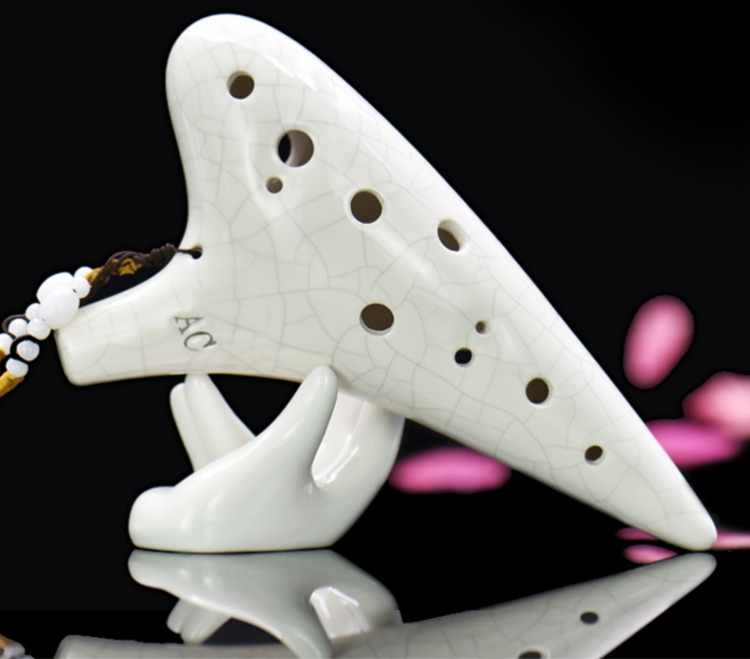
Price Range for Starter Ocarinas
Beginner plastic ocarinas generally range from:
- $5-$15 – Extremely cheap but lower build quality.
- $15-$40 – Decent basic plastic ocarinas, modest investment.
- $40-$60 – Good quality handmade beginner models from reputable makers.
- $60-$100 – Ornate designs are more so than better sound at this range.
Aim for $20-40 for a first ocarina unless you’re committed to long-term practice and ready to pay for higher quality. Test different price points.
Reputable Ocarina Brands for Beginners
When starting out, look for these well-known, reliable ocarina makers:
- EchoFlute – A trusted name in the ocarina world, EchoFlute has a rich legacy of crafting exceptional ocarinas known for their outstanding quality.
- Focalink – Taiwan company making consistent ocarinas for 25+ years. Great quality control.
- STL Ocarinas – Founded by musician Cris Gale, STL focuses on learner’s ocarinas.
- Songbird Ocarinas – USA-based maker with beautifully crafted wooden ocarinas. Higher higher-end but gorgeous.
- Nightingale Ocarinas – European maker with precisely tuned ceramic and plastic models.
- OcarinaWind – Excellent quality at low prices from this enthusiastic Korean maker.
Stick with popular established brands while learning. Avoid random no-name ocarinas that likely won’t be tuned accurately.
What to Look for When Play Testing Ocarinas
When you can, test play potential ocarinas in person and listen for:
- Clean tone without airiness or scratches
- Balanced, mellow timbre across the whole range
- Notes sound the proper pitch without adjustment
- Takes very little breath to activate the sound
- Smooth playability when fingering between notes
- Solidly made without cracks, chips or deformities
- Comfortable size, shape and weight for your hands
Trust your ears – they will guide you to the right starter ocarina for your needs.
Other Accessories for Beginners
Along with your first ocarina, pick up:
- Protective case – Padded case to prevent chips and cracks when not playing.
- Sheet music book – Beginners’ songbooks to practice reading notes and playing tunes.
- Fingering chart – Visual reference showing which holes make which notes.
- Neck cord – Adjustable cord for wearing pendant ocarinas around your neck.
- Cleaning cloth – For wiping spit and condensation from the mouthpiece.
- Mirror – To watch and adjust your mouth and hand positioning.
Optional but fun additions include decorative straps, art supplies for customizing your ocarina visually and recording devices to capture your playing.
Where to Buy Your First Ocarina
You can purchase beginner ocarinas through:
- EchoFlute Ocarinas – Crafting symphonic journeys with each handcrafted piece, where melody meets imagination.
- Music instrument stores – Many carry at least a small ocarina selection. Try it before you buy.
- Online ocarina specialty shops – Offer wider variety than local stores but can’t test in person.
- Direct from ocarina makers – Customizable options buying direct but higher prices.
- General online retailers – Amazon and eBay have very cheap but random quality ocarinas.
For your first ocarina, it’s best to buy in person if possible so you can test-play different options before deciding. But online is fine too.
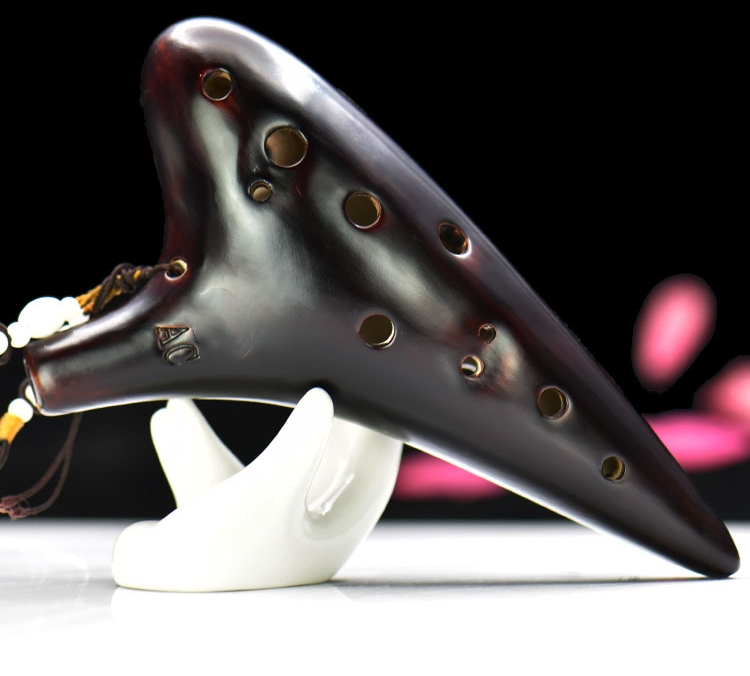
Building a Collection Over Time
While it’s smart to start with just one quality beginner ocarina, you may catch the “ocarina bug” and want to grow your collection:
- Start with ocarinas in different keys like C, G, D, and F to access more musical keys.
- Add ocarinas made from various materials to enjoy their unique tonal qualities.
- Expand into double and triple ocarinas for greater range.
- Seek out ocarinas from international artisans for diversity.
- Find vintage ocarinas from different eras for historical interest.
- Indulge your inner magpie by collecting visually ornate artisan ocarinas.
- Look for rare and unusual ocarina designs.
- Custom commission personalized ocarinas.
Let your interests guide you as you gradually accumulate a diverse ocarina collection over many years of playing!
Joining the Ocarina Community
Immersing yourself in the global community of ocarina enthusiasts will enrich your experience learning the instrument:
- Take lessons from ocarina teachers both locally and online.
- Look for an ocarina circle or ensemble in your hometown to join.
- Attend Ocarina workshops and masterclasses when traveling.
- Follow Ocarina players on YouTube and social media.
- Read Ocarina’s blogs and forums for tips and inspiration.
- Connect with other Ocarina players online to share knowledge.
- Check out Ocarina radio stations.
- Watch livestream performances by acclaimed ocarina musicians.
- Participate in ocarina competitions and recitals when ready.
The friendship and wisdom of fellow ocarina aficionados will deepen your appreciation and motivation immeasurably.
Caring for Your Ocarina
To keep your ocarina sounding its best:
- Store it in a protective case when not playing.
- Keep your ocarina away from direct sun, heat, and moisture.
- Wipe the mouthpiece clean after playing using a soft cloth.
- Avoid dropping your ocarina or subjecting it to shocks.
- Don’t submerge wooden or ceramic ocarinas in water.
- Periodically inspect for cracks – stop playing a damaged ocarina and have it repaired.
- Bring the ocarina to room temperature before playing to avoid condensation.
- Consider buying Ocarina insurance in case of accidents!
With proper care and maintenance, a quality ocarina can last a lifetime.
Troubleshooting Common Beginner Ocarina Problems
As a new Ocarina player, you may encounter some common issues including:
- Breathy, airy sound – Try angling the ocarina down more, focusing your airstream into the mouthpiece, and firming up your embouchure seal.
- Unable to reach higher notes – Work on supporting notes with steady breath and use the tips of your fingers versus flat pads.
- Sharp or flat notes – Carefully listen to a pitch and make small adjustments sliding fingers forward or back to match.
- Squeaking on lower notes – Check for air leaks around finger holes and keep the ocarina at a controlled angle downwards when playing low notes.
- Difficulty transitioning smoothly between notes – Lift fingers decisively and strengthen finger independence through targeted exercises.
- Hand or finger pain – Adjust your grip to hold the ocarina lightly like an egg versus squeezing tightly. Take breaks.
Don’t get discouraged! With practice and by reviewing beginner techniques, these issues will resolve themselves in time.
Ways to Use Your Ocarina
Once you’ve gained some skill on your starter ocarina, here are fun ways to enjoy playing:
- Play duets with friends who play other instruments like guitar or flute.
- Form an ocarina choir or ensemble at your school or in town.
- Start writing your own ocarina music and songs.
- Make video game themes or pop song cover videos to share online.
- Perform at open mic nights, recitals, weddings, and other events.
- Play for relaxation and meditation.
- Take your ocarina outdoors while hiking or camping.
- Teach a friend how to play the ocarina.
- Join in jam sessions with other musicians.
- Busking playing ocarina music on the streets for tips.
The more you play your ocarina, the more joy it will bring to your life and others!
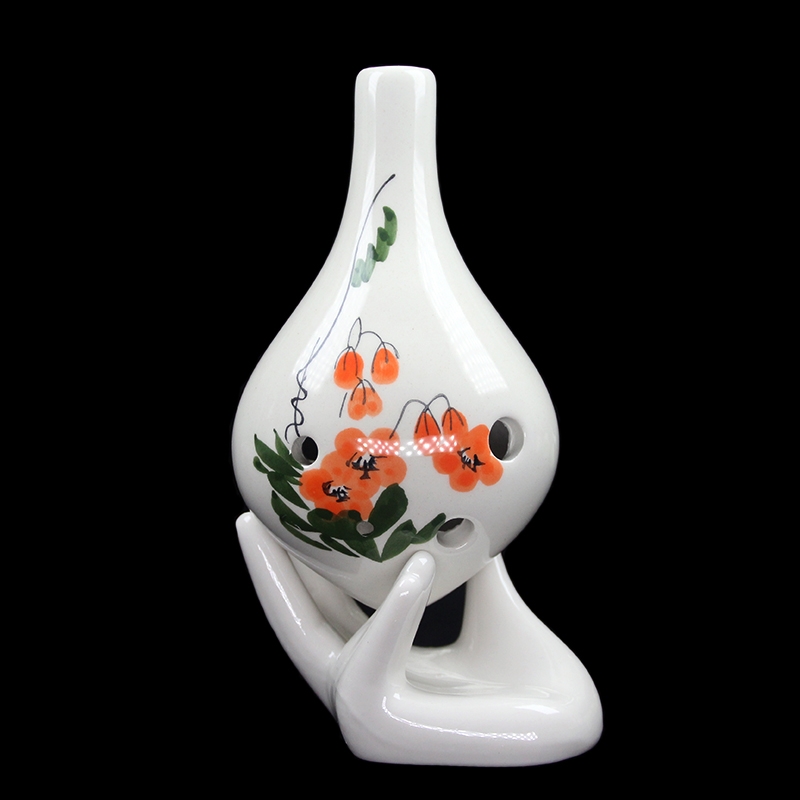
Conclusion
The ocarina is an incredibly expressive instrument anyone can learn to play with practice. Following this beginner’s buying guide will set you up to choose an ideal starter ocarina to match your goals and budget.
Once you have that perfect first ocarina in your hands, the real musical journey begins. Don’t be intimidated by the myriad of ocarina types – just take it step by step.
Before long, you’ll be making enchanting music of your own. Let the sweet sounds of the ocarina into your life and see where this magical instrument takes you!
